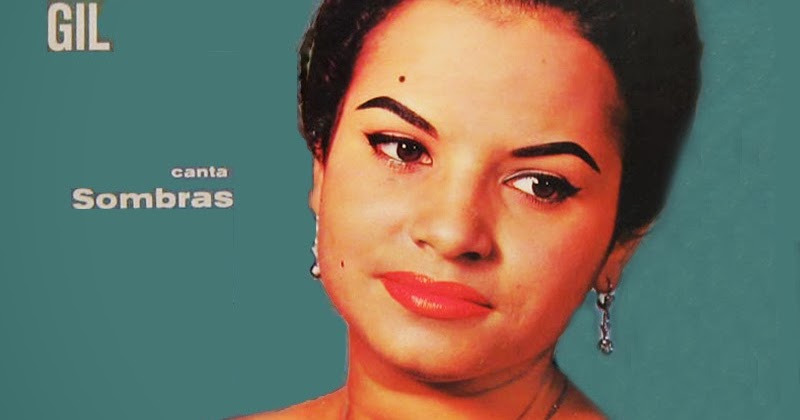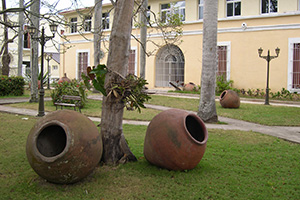BLANCA ROSA GIL DREAMS WITH CUBA AND TO SING TO HER ADMIRERS.
“My dream is to sing for my people again, even with a cane. I do not lose hope of standing on a Cuban stage and singing to my people,” said Cuban singer Blanca Rosa Gil in an interview with Martí Noticias.
The Bolerista, baptized like “the doll that sings”, this Saturday turns 80 years
Blanca Rosa Gil began her career at age 17 in Venezuela and from there she reached the Cuban stage (to radio and to CMQ Television). For more than 40 years he has been living in Puerto Rico.
She also commented that the song that internationalized her and took her to tour the stages of Europe was “Hunger”, in 1966.
“The truth is that before the album Sombras I was a stranger among the public of Cuba, and the company Modiner recorded me as a test a disquito of 45 PRM, with the songs ‘Romance Azul’ and ‘What I know’, to see if I liked it so much that it was so Modiner decided to record the LP Shadows, with numbers that people hummed afterwards on the streets, like ‘Kisses witches’, ‘My sad condemnation’ and ‘I want to talk to you’. Then followed ‘Cristal’, in 1961, “recalled the bolerista.
https://youtu.be/khtDlXC223s
Other themes of Blanca Rosa that catapulted her to fame were “You made me a woman”, “Kisses of fire” and “I hate you and I love you”.
Asked about the singers who inspired her, she listed “Xiomara Alfaro, with whom I shared a stage in Miami a few years ago, Olga Guillot, Celia Cruz … They were icons for which we emerged later, they were artists who made Cuba shine.”
He also said that he had many “beautiful memories” of his native town in Matanzas: “I was born in Fresneda number 2, in Perico, a wonderful town, with beautiful people, a small, beautiful village that I never lose hope of visiting again Look, I could never take my shows there, I hope I can do it someday with the favor of God. ”
“I do not agree to go (to the island), I have some relatives in Cuba, nephews, but only when Cuba is truly democratic, Blanca Rosa Gil will sing to her people. They have disappeared.Many people have spoken to me in Puerto Rico to go, but I maintain my position, “he said of his desire to return to his country.
“I thank with all the strength of my heart that the public of Cuba, my people of Cuba, still keep my records and sometimes listen to me even cleaning in their homes. It surprises me and admires me, and I thank God that These people keep me in their memory despite the passage of the years. For me it is also a mystery that I be heard inside Cuba, “he added.
As for his absence on stage for almost two decades and his return in 2003 explained that it was due to personal and spiritual decisions.
He concluded his interview by saying that “Bolero will never disappear. It is something that continues to be important for people to fall in love.”
Interviewed by Orlando González Esteva in the program Entre Nosotros de Radio Martí, the singer talked via telephone with several Cubans residing on the island and thanked “those who keep it in their hearts and minds” despite the official silence on their Figure and its absence in the state media.
BLANCA ROSA GIL SUEÑA CON CUBA Y CANTARLE A SUS ADMIRADORES.
“Mi sueño es volver a cantar para mi pueblo, aunque sea con un bastón. No pierdo las esperanzas de pararme en un escenario cubano y cantarle a mi gente”, afirmó la cantante cubana Blanca Rosa Gil en entrevista con Martí Noticias.
La bolerista, bautizada como “La muñequita que canta”, este sábado cumple 80 años
Blanca Rosa Gil comenzó su carrera a los 17 años en Venezuela y de allí llegó a los escenarios cubanos (a la radio y a CMQ Televisión). Desde hace más de 40 años reside en Puerto Rico.
Comentó, además, que la canción que la internacionalizó y la llevó a recorrer los escenarios de Europa fue “Hambre”, en 1966.
“La verdad es que antes del disco Sombras yo era una desconocida entre el público de Cuba, y la compañía Modiner me grabó como prueba un disquito de 45 PRM, con las canciones ‘Romance Azul’ y ‘Qué sé yo’, a ver si yo gustaba. Y pegaron de tal manera que fue así que Modiner se decidió a grabarme el LP Sombras, con números que la gente tarareaba después en las calles, como ‘Besos brujos’, ‘Mi triste condena’ y ‘Quiero hablar contigo’. Luego siguió ‘Cristal’, en 1961”, rememoró la bolerista.
Otros temas de Blanca Rosa que la catapultaron a la fama fueron “Tú me hiciste mujer”, “Besos de fuego” y “Te odio y te quiero”.
Interrogada sobre los cantantes que la inspiraron, enumeró a “Xiomara Alfaro, con quien hace unos años compartí escenario en Miami, Olga Guillot, Celia Cruz… Eran íconos para los que surgimos después. Ellas fueron artistas que hicieron brillar a Cuba”.
Asimismo, dijo tener muchos “lindos recuerdos” de su pueblo natal en Matanzas: “Nací en Fresneda número 2, en Perico, un pueblo maravilloso, con una gente preciosa, un pueblecito pequeño, bello, que no pierdo las esperanzas de volver a visitar. Mira, nunca pude llevar mis espectáculos allí. Espero que pueda hacerlo algún día con el favor de Dios”.
“No estoy de acuerdo en ir (a la Isla). Tengo todavía algunos familiares en Cuba, sobrinos, pero solo cuando Cuba sea verdaderamente democrática, Blanca Rosa Gil irá a cantarle a su gente. Las razones por las que salí de mi país no han desaparecido. Me ha hablado mucha gente en Puerto Rico para que vaya, pero yo mantengo mi posición”, abundó sobre sus deseos de volver a presentarse en su país.
“Agradezco con todas las fuerzas de mi corazón que el público de Cuba, mi gente de Cuba, aún conserve mis discos y me escuchen a veces hasta limpiando en sus hogares. A mí me sorprende y me admira, y le doy gracias a Dios que esa gente me conserve en su memoria a pesar del paso de los años. Para mí es también un misterio que yo sea escuchada dentro de Cuba”, agregó.
En cuanto a su ausencia en los escenarios por casi dos décadas y su regreso en 2003 explicó que se debió a decisiones personales y espirituales.
Concluyó su entrevista afirmando que “El bolero no desaparecerá jamás. Es algo que sigue siendo importante para que la gente se enamore”.
Entrevistada por Orlando González Esteva en el programa Entre Nosotros de Radio Martí, la cantante conversó vía telefónica con varios cubanos residentes en la Isla y agradeció a “ese público que la mantiene en sus corazones y en sus mentes” a pesar del silencio oficial sobre su figura y de su ausencia en los medios estatales.
Agencies/DDC/Internet Photos/YouTube/Arnoldo Varona/TheCubanhistory.com
THE CUBAN HISTORY, HOLLYWOOD.








